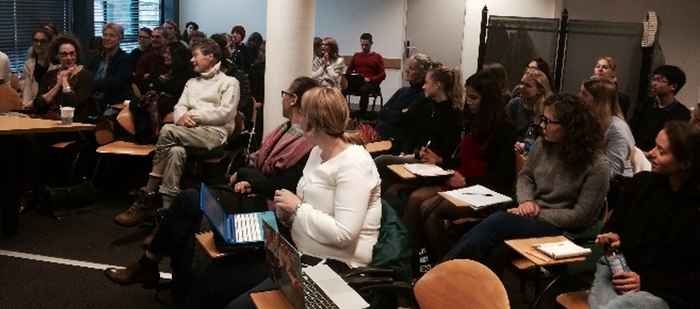ARC-GS Lecture Series: Opposition to gender equality
By Anne Louise Schotel
Opposition to gender and sexual equality in Europe is on the rise. At the same time there are signs that democracy across Europe is endangered. How can we understand these developments and how are they connected? Prof. Mieke Verloo (Professor of Comparative Politics and Inequality Issues at Radboud University) tackled this question in a lecture jointly organized by ARC-GS and ACCESS EUROPE on 20 October.


